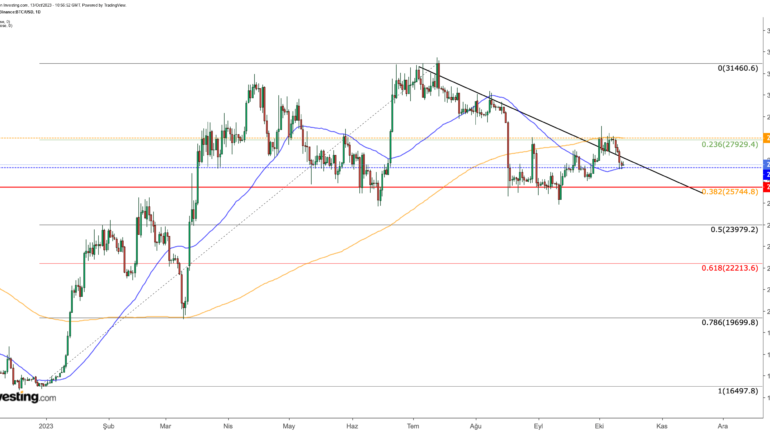
How Nigeria stepped up its AI game in 2023
In 2023, Nigeria embraced AI with initiatives like a national curriculum, strategy and scholarships. Here are the most significant innovations and crypto-related progress.
There is no debating that 2023 was the year of artificial intelligence, with AI on everyone’s radar, including Africa’s most populous nation, Nigeria.
Before 2023, Nigeria didn’t engage much in AI. While the country has startups such as Uniccon Group, the creator of Nigeria’s first humanoid robot, the technology is still very much in its infancy.
Cointelegraph looks back at the year through the lens of Nigeria’s efforts in AI, focusing on the key initiatives, regulations, challenges faced and new opportunities.
AI initiatives in Nigeria
National AI curriculum
In August, the Nigerian government ordered that artificial intelligence be integrated into the country’s primary education curriculum. The nation’s recognition that a robust educational foundation is critical to realizing its AI ambition could be a game-changer.
To this end, the country is developing a standardized AI curriculum to equip students with the knowledge and skills to navigate the AI landscape effectively.
National AI strategy
Also in August, Nigeria invited scientists of Nigerian descent and globally renowned experts who have worked within the Nigerian market to collaborate in formulating its national AI strategy.
Data Protection Act
Data privacy is one of the most significant considerations when utilizing AI, given that models require an enormous amount of data to train their algorithms so that the outputs are accurate.
On June 12, Nigerian President Bola Ahmed Tinubu signed the Nigeria Data Protection Act 2023 into law. While it is not explicitly an AI regulation, AI companies who intend to expand operations into the country or startup operations in the country should be aware of it.
Training data for AI may include personal data protected under the Nigerian Data Protection Act 2023 and the Nigeria Data Protection Regulation 2019.
Compliance with Nigerian data protection laws is essential when handling personal data, including obtaining consent from data subjects, implementing privacy policies and terms of use, and conducting regular audits through a data protection compliance organization.
AI scholarships
In October, the Nigerian government announced grants of 5 million naira ($6,444) to 45 AI-focused startups and researchers.
This initiative is part of the recently introduced Nigeria Artificial Intelligence Research Scheme, designed to facilitate the widespread utilization of AI to drive economic advancement.
Government support
The chief of Nigeria’s National Information Technology Development Agency (NITDA), Kashifu Inuwa Abdullahi, told Cointelegraph in a November interview that collaboration between NITDA, the Central Bank of Nigeria and financial institutions is necessary to leverage emerging technologies such as AI and data analytics to deepen digital payments.
Youth AI programs
Engaging the youth is central to Nigeria’s AI strategy. Various AI boot camps, hackathons and workshops were organized in Nigeria in 2023 to introduce young minds to the technology. One such example was the Data Science Nigeria AI Boot Camp, held in August for young people between 12 and 18.
The National Centre for Artificial Intelligence and Robotics also worked to develop frequent digital skills and AI learning training programs, encouraging young people to gain greater knowledge as part of its mission to train 1 million developers in Nigeria. The training involves learning programming skills for machine learning and artificial intelligence.
Challenges and opportunities
Adopting connectivity and AI in Nigeria presents significant business opportunities, but it is not without challenges. One of the critical hurdles is the need for a robust digital infrastructure.
Reliable data centers and internet access are essential for the seamless integration and efficient operation of AI-powered applications.
Making the right AI policies in Nigeria is a critical step toward advancing technology, and it starts with creating awareness. Digital governance specialist Victor Famubode told Cointelegraph that the government needs to make sure it is communicating the opportunities and risks associated with AI and, at the same time, promoting responsible usage of the technology.
According to him, it’s also vital that the government finds a way to incentivize communities that can help drive open innovation.
“When you look at ChatGPT and many of these large language models, the foundation for how they were birthed is from a place of open science. We have these models today because open science was allowed in developed economies.”
While Nigeria has yet to create a comprehensive AI policy, it has shown interest in advancing the technology. For example, the Nigerian Communications Commission has published research on AI’s impact on society to provide policymakers with insights into what is possible with the technology.
Nigeria can leverage development opportunities by adopting AI technologies in various sectors and use public-private partnerships to drive further innovative solutions. Such collaborations involve working with tech startups or finance institutions to conduct nationwide digital transformations. An example could be Google supporting the Nigerian government’s objectives to train Nigerian youth in AI.

